Better late than never: ALDOT to hold public hearing on Bridge to Nowhere
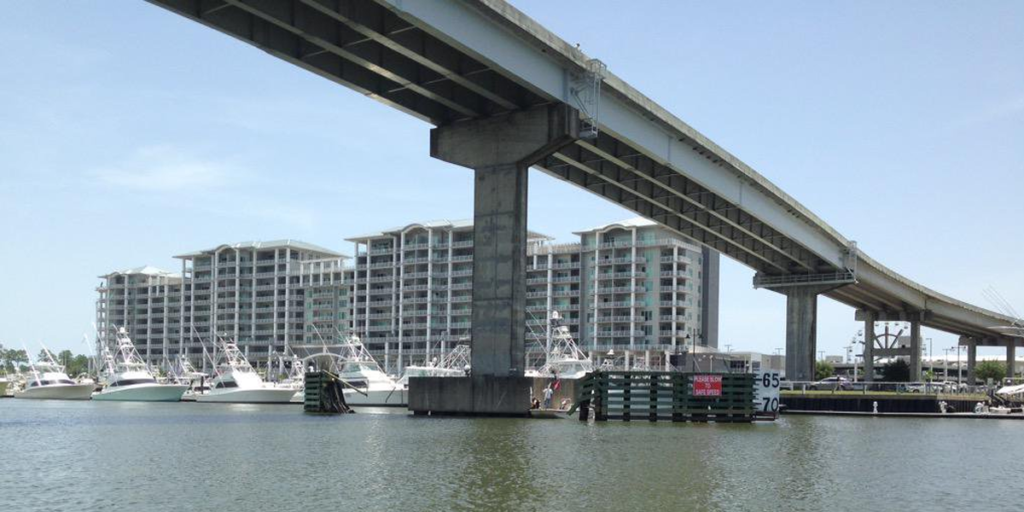
In what may be a turning point for a highly controversial bridge project, the Alabama Department of Transportation (ALDOT) has announced the first project-specific public hearing on a proposed bridge to the beach in Baldwin County. The bridge at hand is the proposed connector from SR-180 to Foley Beach Express Bridge over the Intracoastal Waterway. It will run between Orange Beach and Gulf Shores, Ala. ALDOT is inviting anyone in the Southwest Region (Mobile area) interested in the new bridge to the public hearing on Thursday, Nov. 15 at the Gulf Shores Activity Center. There, they will get a chance to ask questions, make comments, and may review project information and exhibits on display. The bridge debate One one hand is those who are pro-bridge. This group includes several local mayors like Orange Beach Mayor Tony Kennon, Transportation Director at ALDOT John Cooper, as well as the Gulf Shores/Orange Beach Tourism board. According to their website, the tourism board operates “With 34 full-time and 11 part-time employees, the CVB has a $10.46 million budget, which is funded by a 2 percent lodging tax.” The board came under fire last year for starting what some residents called a misleading petition campaign over the bridge. In a Change.org petition to garner support for the new bridge. At the time of publishing, it had garnered the signatures of 5,508 supporters. Opponents of the bridge pointed out that the language included in the petition was at best misleading if not an outright lie. They explain their side saying: Going to the beach has become an all day affair and that’s just the drive time. We can do something about it if we stand together. By signing this petition we can tell the elected officials along the Gulf Coast that we need better ingress and egress to Pleasure Island on the Gulf Coast. A new bridge, with no tolls, will allow more traffic to come across the island and it will reduce traffic flow on our major highways. In a lawsuit against the state testimony confirmed that no studies have ever been conducted to determine the need or impact of an additional bridge. Local residents question any assertion that states that it will “reduce traffic flow” noting that it will put more traffic on Canal Road which is already an area of significant congestion. Meanwhile, those against the beach bridge have amassed in a Facebook group called “End the #Bridge2Nowhere.” They believe $87 million state-funded bridge project is a misguided attempt by ALDOT and specifically John Cooper to curry favor with local politicians while solving no problems and potentially causing more harm to locals through both increased traffic congestion, noise pollution and damage to local property owners through the states use of eminent domain to seize houses and land. ALDOT’s lack of transparency about this project has come under fire from many including local residents, State Auditor Jim Zeigler, Alabama Today’s own Apryl Marie Fogel, and most recently State Senate candidate Jason Fisher. Details and official notice below. If you are not able to make it residents can also send comments by November 30, 2018 to: Email: swinfo@dot.state.al.us Fax: (251) 473-3624 Mail: Vincent E. Calametti, P.E. Region Engineer, Southwest Region ATTN: Edwin L. Perry III, P.E. Alabama Department of Transportation 1701 I-65 West Service Road N Mobile, Alabama 36618 View the invitation Southwest Region residents received to the public hearing below:
Proposed new Baldwin County beach bridge spurs lawsuits, public activism
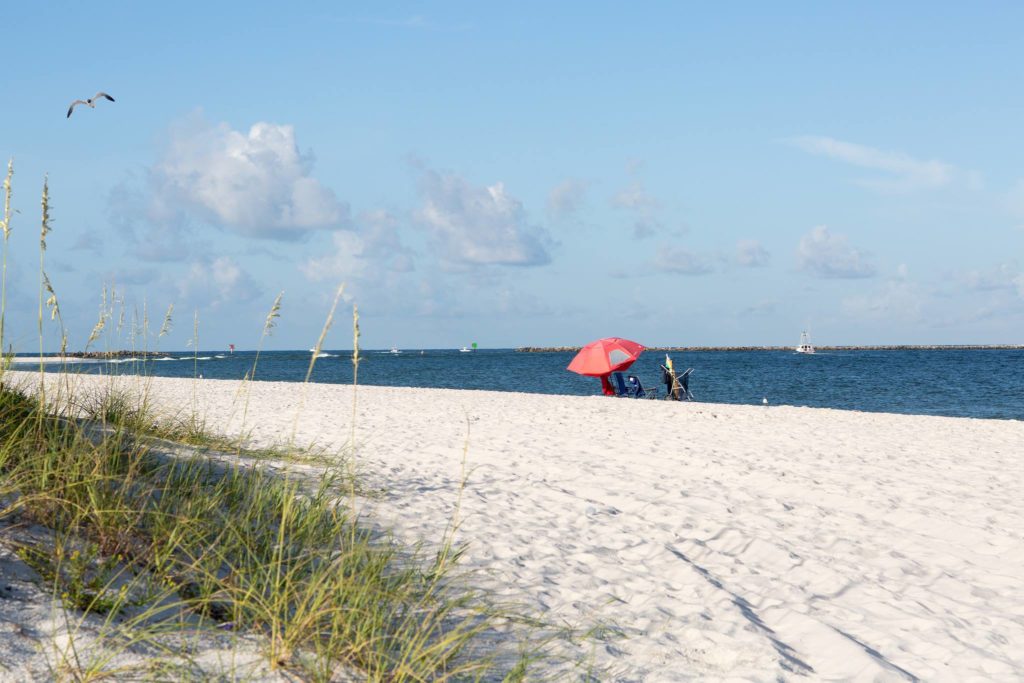
The battle over bridges continues in Baldwin County where an $87 million state-funded bridge project is being blamed for wasting taxpayer funds and diverting much-needed state resources away from other critical state infrastructure projects. Under fire is Director John Cooper of the Alabama Department of Transportation (ALDOT) for his plans to build a new bridge connecting the Foley Beach Express to Canal Road in Orange Beach. On one side of the argument is the Baldwin County Bridge Company (BCBC) a subsidiary of American Roads LLC, the company that was brought in as a private-public partnership to build and operate the Foley Beach Express — a toll bridge as an alternative to Highway 59. The toll was intended to save travelers time and money. Rather than sitting in congested traffic and waiting for over 25 stop lights on the highway, the Foley Beach Express allows drivers to cruise to the beach, all the while bringing in much-needed funds for local infrastructure improvement. In support of the bridge, “We have to be able to move traffic., we’ve got to be able to evacuate and we have to be able to grow,” Orange Beach Mayor Tony Kennon told AL.com. “One bridge with a toll does not help us do that.” Kennon has long been an active critic of the toll road, going on the record hoping the owners previous financial troubles would mean the city could buy the bridge at a low cost. Last summer, to help satisfy frustrations American Roads unveiled their “Beach Express, GO!” initiative, which included lowering tolls throughout the summer, and even “lifting” the tolls during peak congestion times around concerts and widely attended events as part of their first steps in a comprehensive plan to work with the state and community to provide the safest and most efficient service to those headed to or from the beach this summer and beyond. And after a year of debate, local officials last August settled on widening the existing Foley Beach Express bridge with a third lane that will be reversible depending on traffic needs rather than building a third bridge to help ease congestion. But ultimately negotiations broke down when ALDOT requested that the BCBC give the city of Orange Beach the bridge at no cost. Thus, plans for the additional bridge resurfaced. Which is why the BCBC has filed a complaint against the State of Alabama. Filed on April 2, the BCBC is objecting the ALDOT’S petition to “unjustifiably” take BCBC’s property “by eminent domain.” Outside push-back Some Baldwin County residents are pushing back against the bridge as well. A 600-plus member Facebook group dubbed the Bridge2Nowhere says it has opposed the project since it was first suggested in 2015. The group’s leader, a 25 year resident of the Gulf Shores/Orange Beach area, Joseph Emerson believes people are being misled to think the bridge is a necessary solution to the traffic congestion. The group is actively opposed to the use of eminent domain to take land and properties the state will need for this bridge. Emerson is active on Facebook debunking rumors and myths about the additional bridge and pushing back against DOT and the Mayor’s justifications. “I keep seeing interviews of people saying, ‘We need a bridge because the traffic is so bad.’ PEOPLE! THINK!,” Emerson posted. “Without a north/south access to the beach… traffic will be compounded not alleviated. This bridge project is not a solution!” ALDOT has not responded to Alabama Today for comment.
Northern Beltline construction loses funding, now competing with other state projects
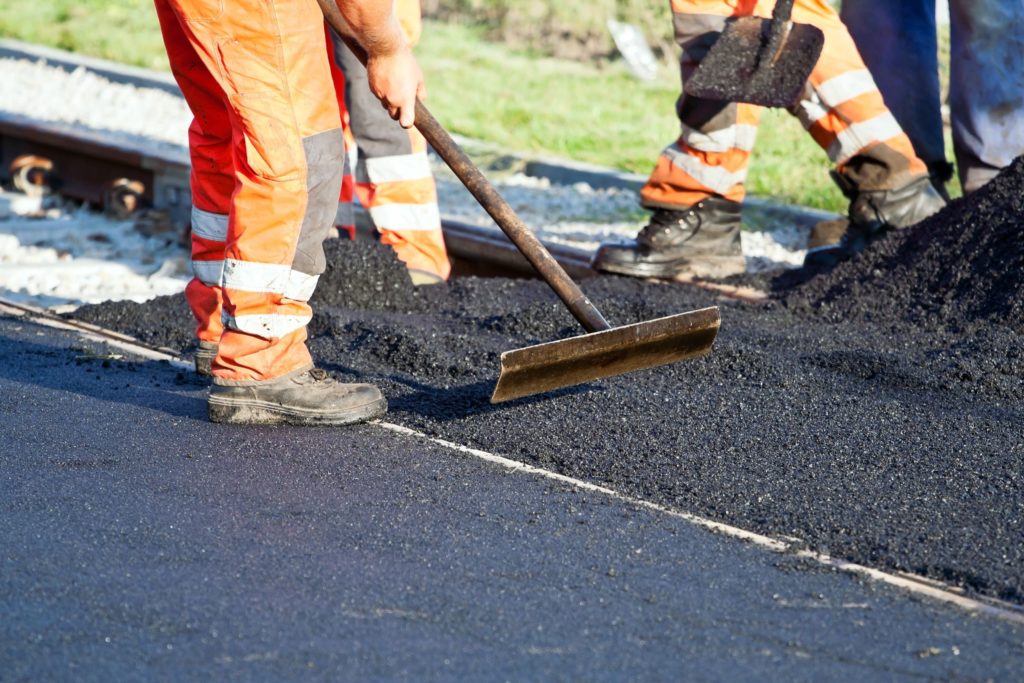
Construction delays to complete Birmingham’s Northern Beltline — a 52-mile, six-lane highway that would connect Interstate 459 in Bessemer with Interstate 59 in northeast Jefferson County — continue due to loss of funding, according to AL.com. First started in 2014, beltline construction was later delayed in 2016 to loss of funding for the estimated $5.3 billion project. The Alabama Department of Transportation (ALDOT) hoped to start working on the project again in 2019, but the project, which was being funded by the Appalachian Development Highway System, was not funded in the 2018 federal transportation bill. Now, the project is going to need state funding to continue in 2019 as originally planned. “Unfortunately, adding lanes along existing, heavily congested roadways typically take a higher priority since the relative cost is so much less for relief,” Linda Crockett, spokesperson for ALDOT’s East Central Region, told AL.com. “The Northern Beltline is obviously needed but will take several years to fund and construct,” she added. “If there is a change in funding, either through an increase in gas taxes or if funds are dedicated toward the ADHS again, it may help the construction pick back up, but for the foreseeable future, it will be very limited.” One of the many projects the could compete with the beltline funding is that of the proposed, competing bridge to the Foley Beach Express down in Orange Beach. This proposed bridge could divert much needed state resources away from other critical state infrastructure projects such as the beltline. “Construction of the Northern Beltline is expected to enhance cross-region accessibility, create jobs, stimulate economic growth and respond to existing development, as well as address future traffic growth,” said BetterBeltline.org. “Birmingham is unique among U.S. urban areas because it has four interstates that converge and connect to other southeastern metropolitan areas. The Beltline touches every mainline interstate in Jefferson County and creates significant opportunities for growth and prosperity.” But if Alabama had to pay the tab on its own, the project “would never pass the idea stage,” Beth Osborne, who spent five years as a senior policy official in the Obama administration’s Transportation Department and is now at the advocacy group Transportation for America, told Environment and Energy News. ALDOT last projected the Northern Beltline should be completed in 2054. Only time will tell if Osborne is correct.
Will taxpayers statewide be on the hook for new beach bridge?
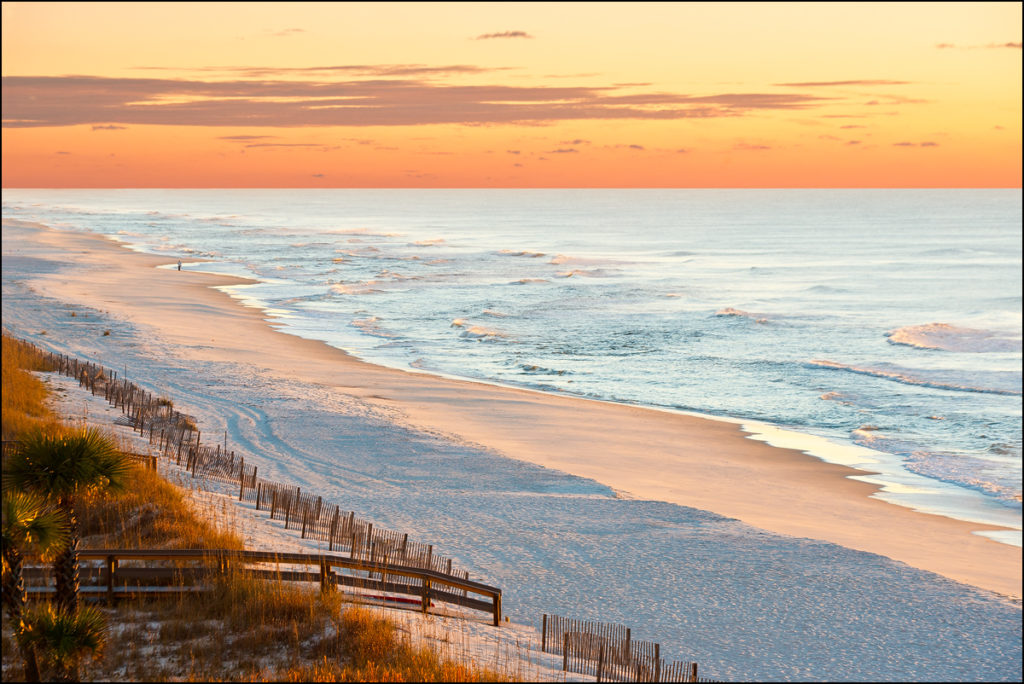
Usually, local Town Halls are primarily about issues only relevant to those in that area. That’s not always the case. An upcoming Town Hall meeting in Orange Beach is a prime example of one with statewide implications. The meeting has been called to discuss two critical subjects: first, creating an independent city school system and then what’s happening relative to bridges and roadways. It is this second conversation, which has piqued the interest of politicos and taxpayer advocates statewide. Locals are speculating that among the topics to be discussed is in what has been described as a costly and unnecessary second local bridge. The proposal many are expecting according to local sources, is a competing bridge to the Foley Beach Express. This proposed bridge would divert much needed state resources away from other critical state infrastructure projects The Town Hall, hosted by Orange Beach Mayor Tony Kennon and the City Council, is scheduled for Tuesday, Nov. 7 at Orange Beach Event Center. Both the Baldwin County Schools Superintendent Eddie Tyler and the Alabama Department of Transportation Director John Cooper will clear their schedules to be in attendance. “Director Cooper and Vince Calametti will be here from ALDOT, who will announce what’s going to happen relative to bridges and roadways,” Kennon said during Tuesday’s city council meeting. Cooper’s attendance comes at a time when both Montgomery and Birmingham are both having real highway crises. In fact, State Auditor Jim Zeigler identified the top four projects he believes ALDOT needs to tackle, including a proposal for how to pay for them, which have nothing to do to with the creating of a second bridge which he is not sure current traffic conditions calls for. Zeigler’s priorities include: Fixing the congestion on 280 in Jefferson and Shelby Counties Creating six-lanes from I-65 from Pelham petroleum tanks to Prattville Building four-lanes and upgrading “Bloody 98” in west Mobile County Completing the I-10 bridge and expansion of I-10 Bayway over Mobile Bay Cooper has a history of using his office for political purposes. In the past he admitted to halting proposals in the Yellowhammer State to retaliate against those who opposed former Gov. Robert Bentley‘s tax plan. Leaving many to wonder if his decision to prioritize a second beach bridge is another example of misplaced priorities and rewarding loyalty. The Town Hall is also prepared to discuss the Orange Beach school system. “Eddie Tyler and his staff from the county school system will be there as we discuss the new schools and the split, and answer questions as we can,” Kennon added. He is referring to the split between Orange Beach school system and Gulf Shores regarding the future of a $14.9 million new high school, which is projected to be completed by 2019. It has yet to be determined whether of Gulf Shores will break from the Baldwin County School System. Kennon is hoping for a large crowd to show state officials what locals truly think of the projects. “We need 1,200 to 1,300 people to show up,” Kennon added. “We need to make an impression on the state and on the county that it matters to us. …We need to make an impression on our new governor.” The Town Hall will begin promptly following the City Council’s 5 p.m. meeting. The public is encouraged to attend.
The key to Alabama’s economic future: Infrastructure investments
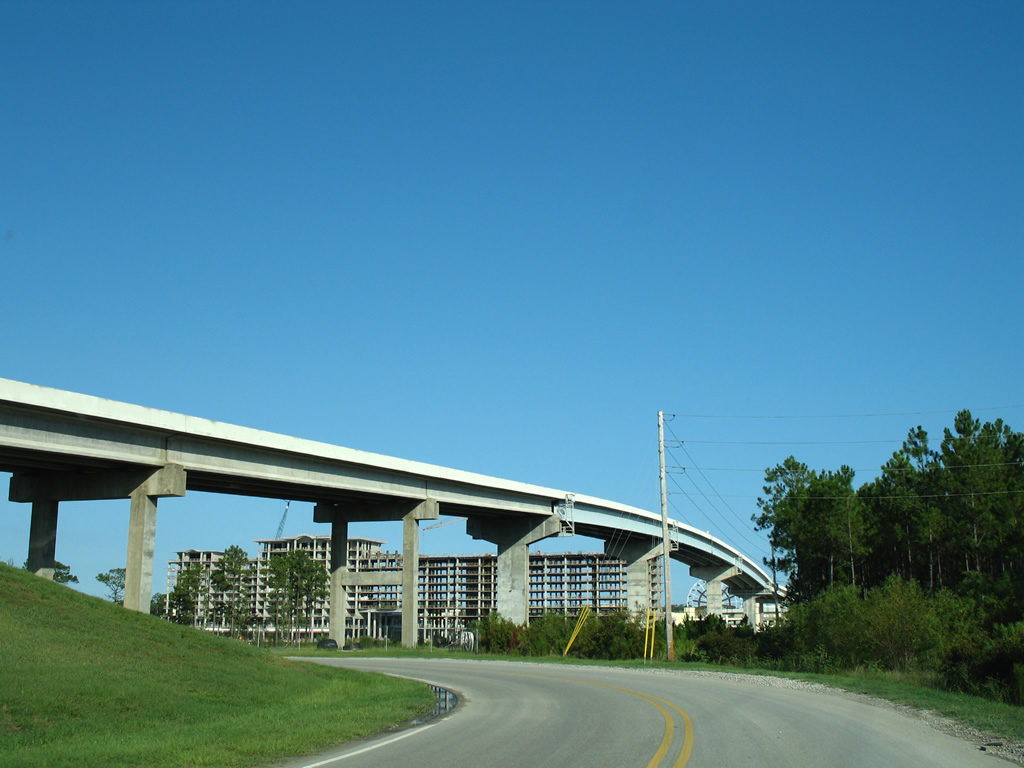
Sometimes the best way to look at the future is to study the past. In Alabama, we know that after Thomas Jefferson completed the Louisiana Purchase, he immediately authorized infrastructure to connect the new lands with the east. From Postal roads to ports and railroads, Alabama grew and prospered with each new infrastructure project. Today, if Alabama is going to remain competitive — make no mistake, other states are actively reducing burdensome regulations and facilitating new infrastructure projects to continue to attract jobs and investment — then Alabama has to get to work. One thing history has shown us is that when the good people of Alabama roll up their sleeves and get to work, we can compete and we can compete and win in a global market. Today our state needs to focus on several new and critical infrastructure projects that require our attention This is a nationwide issue of critical importance; the United States has an estimated $5.2 trillion (with a T) backlog of unmet infrastructure needs. It’s not a matter of if we need new infrastructure investment, but how we do it most efficiently without saddling taxpayers with massive costs. Many of these answers lie in the public-private partnership model, in which the government partners with private businesses to build, operate and maintain critical infrastructure. It’s a model that recognizes the efficiencies and speed with which the private sector can get things done, while meeting and delivering all requirements for the state and federal governments. Projects that languish in underfunded bureaucracies can come to life when these public-private partnerships are used. And most importantly, the dollars necessary to fund critical transportation projects come from the private sector, not the taxpayer. Alabama is seeing a boom along its southern coast, with cities like Orange Beach and Gulf Shores experiencing massive tourism-fueled growth. This is great news for the region and for our state as a whole, but with growth comes congestion. Until a privately owned toll bridge was constructed, visitors and locals only had one way to cross the Intracoastal Waterway to get to the Gulf: the I-59 bridge. But that private toll bridge, the Beach Express, gives visitors an option to avoid the congestion of I-59 and pay a small toll for the right to cross quickly. The Beach Express has roughly one-tenth of the traffic seen on I-59. That isn’t just good news for commuters, but taxpayers across Alabama as well. No public money has gone toward the construction, operation or maintenance of the Beach Express. And because a private company owns the asset, there is a profit motive that ensures they will do everything they can to attract more drivers. We saw this with a recent announcement that American Roads, the owner of the Beach Express, is voluntarily lowering tolls for drivers while simultaneously investing its own money in widening the bridge to improve traffic flow. Today, in Washington, D.C., there is a renewed vigor to rebuild America starting with its infrastructure. There are a number of federal programs that specifically focus on public-private partnerships. The Beach Express is a great example of how these partnerships should work. Sitting in traffic wastes your time, wastes fuel, and hurts everyone. With access to funding, the private operators can get the expansion moving–and get you moving–much faster then the traditional government model. Alabama has a lot to be proud of, but we also have a lot of work to do to remain competitive and to improve our quality of life. We can start by recognizing the limitations of the traditional government run infrastructure projects and overcome those limitations by using the more efficient public-private partnership model in cases where it makes sense to do so. The Beach Express expansion is a perfect example where this can come into to play and the people of Alabama, and the citizens of Mobile, will be far better for it.
Setting an example other states can follow: Foley Beach Bridge is working.
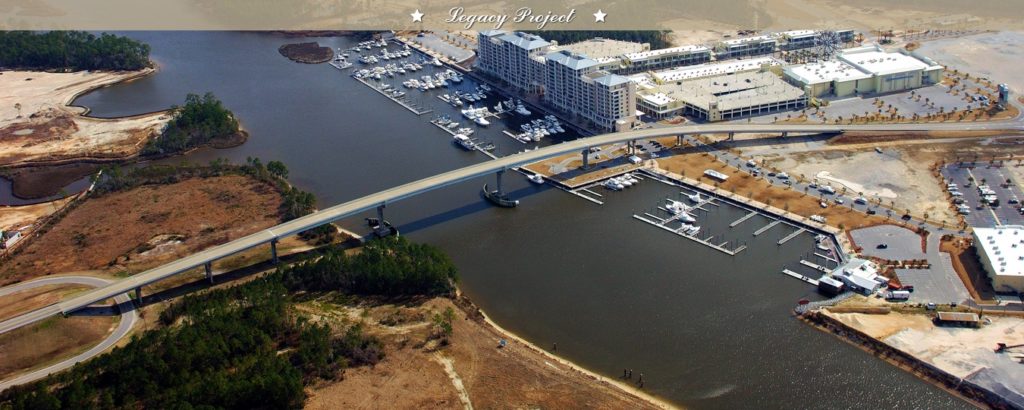
Small government voters and elected officials throughout the nation, but especially here in our ultra-conservative state, are constantly touting smaller government and innovative public-private partnerships as the often untapped solution to most of our fundamental problems. Why invest in big government, taxpayer funded solutions when there are industries who can do the job usually faster, cheaper and more efficiently? We’re in a state of emergency with our nation’s infrastructure — of that there’s no doubt. To remedy this state’s across the nation have begun passing gas tax increases. But not in Alabama. Here, the Alabama Legislature has clung hard to it red-state ideals and avoided tax hikes, instead seeking alternative solutions including finding ways to maximize federal dollars and partner with companies interested in investing in the Yellowhammer State. Such is the case with the Foley Beach Express Bridge to Orange Beach. There, the state brought in American Roads LLC to build and operate a toll bridge as an alternative to Highway 59. The toll is intended to save travelers time and money. Rather than sitting in congested traffic and waiting for over 25 stop lights on the highway, the Foley Beach Express allows drivers to cruise to the beach, all the while bringing in much-needed funds for local infrastructure improvement. After a year of debate of both impractical and costly solutions, such a building a pricey third bridge to help ease congestion, local officials have settled on widening the existing Foley Beach Express bridge with a third lane that will be reversible depending on traffic needs. As reported by Al.Com, among the solutions offered by American Roads is their initiative “Beach Express, GO!”, which included lowering tolls throughout the summer, and even “lift” the tolls during peak congestion times around concerts and widely attended events. These being among the first steps in a comprehensive plan to work with the state and community to provide the safest and most efficient service to those headed to or from the beach this summer and beyond. “After Labor Day, we will start construction for the improvements, including adding a third, reversible lane on the bridge to accommodate two lanes of traffic in one direction, as well as widening the toll plaza and part of the southbound Foley Beach Express by the plaza. Electronic trolling will further help by eliminating the need to stop for toll payment,” Neal Belitsky, chief executive officer of American Roads, told local TV station Fox 10. This solution provides another look at the way that local partnerships are suppose to work. Without threats and bullying and big government solutions but instead a rational and deliberative process — to allow the private sector continue to manage the problem. The new lane will provide all the benefits that another bridge would, and rather than forcing taxpayers statewide to fund a solution, only the people who use the bridge will pay for it via the tolls. Nevertheless, some in government continue to privately advocate for a public, non-tolled, bridge to the coast. Which begs the question? Why? Why in a state with a perennial budget shortfall, do we have any state officials think a statewide taxpayer solution is the way to go? The new lane should be the answer. In fact, it is the answer. The debate should stop here. Alabama is on the forefront of showing the rest of the country that private public partnerships can and do work. Let’s let that be the bottom line.


